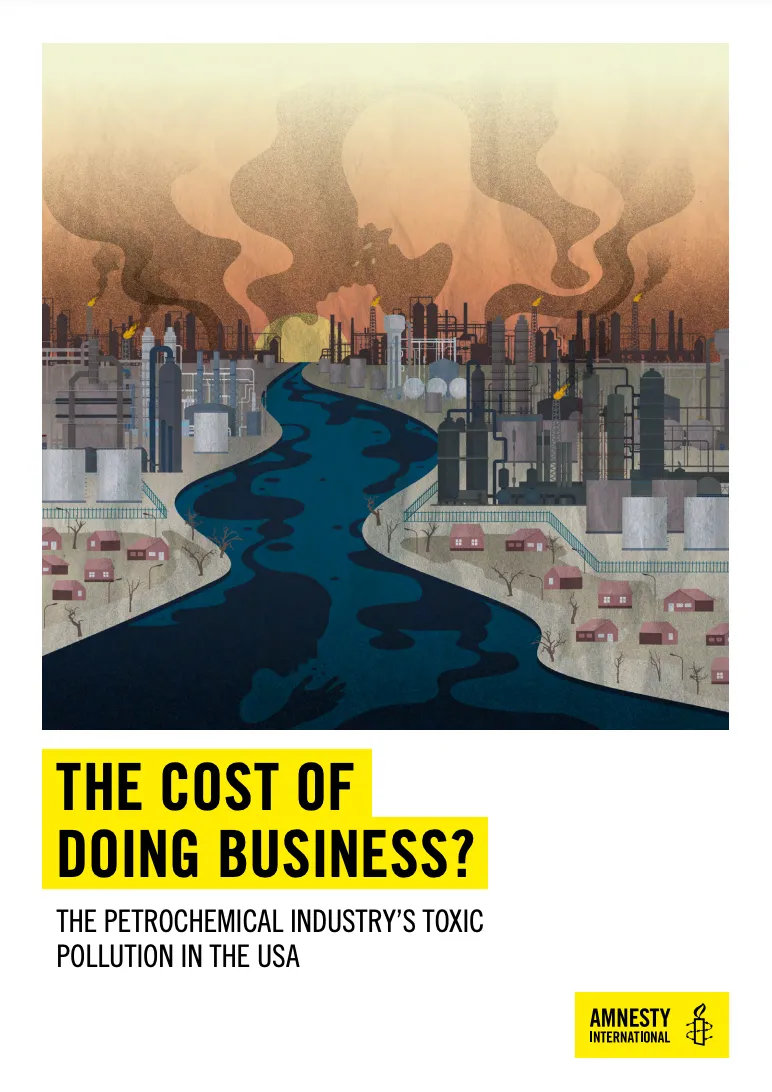
Casey Beck’s film “Smells Like” is the poignant story of Juan Flores, an activist fighting for his community’s basic right to clean air. Residing in one of the Gulf South’s “fenceline communities” — neighborhoods that share a backyard with the nation’s biggest oil refineries and petrochemical plants — Flores and his neighbors have spent decades exposed to toxic air pollution causing serious risks to their health.
On January 25, 2024, Amnesty International published Beck’s film as part of a larger report entitled The Cost of Doing Business? The Petrochemical Industry’s Toxic Pollution in the USA, detailing the health and human rights consequences posed to populations living along the Houston Ship Channel, where Flores resides. An award-winning documentary filmmaker, Beck is the director of the Tulane School of Liberal Arts popular Digital Media Practices (DMP) program. Her 16-minute film brings an essential element of humanity and personal narrative to the comprehensive report.
Home to over 600 petro-chemical plants, the 52-mile Houston Ship Channel is labeled a “sacrifice zone,” due to high pollution levels that disproportionately impact Black and Brown communities. The report coincides with a Human Rights Watch publication on Louisiana’s Cancer Alley, another crisis-level “sacrifice zone,” and emphasizes the “devastating human rights toll” on residents in these areas, where populations suffer heightened rates of asthma, cancer, and other diseases, with little to no accountability from the petrochemical industries polluting them. The report criticizes these zones as “a manifestation of environmental racism,” where the rights of marginalized people are sacrificed or ignored in exchange for corporate profit. Fenceline communities like those in Flores’ Harris County, Amnesty International reports, have an average life expectancy that is 20 years lower than those in majority white neighborhoods 15 or so miles away.
“Smells Like” is an activist’s fight for the well-being of his family and community; the film recounts the damage of deadly chemical spills and long-term effects of pollution on residents, including Flores’ young daughter. In a business-centric state like Texas, Flores says, plants continue to push job creation as an excuse for overlooking human rights issues. He otherwise describes his neighborhood as a safe, small community where everyone knows each other, and he challenges the notion that residents should abandon their homes due to environmental hazards — instead advocating for their rights and safety. Flores leads an initiative distributing air quality monitors to households throughout his community.
As the director of DMP, Beck shows her students the power of visual storytelling in compelling audiences to confront uncomfortable truths and advocate for change. Within the program, students are given the opportunity to explore various forms of content creation and media production through workshop-style classes, developing and refining skills in filmmaking, screenwriting, audio production, interactive media, game design, podcasting, and interdisciplinary media.
Produced by Mary Cardaras, funded by the Pulitzer Center and Invoking the Pause, and in partnership with Public Health Watch, “Smells Like” is part of a series Beck is directing on the intersection of environmental issues and race.

